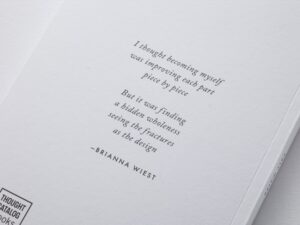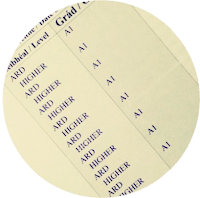Get in exam mode with these tips
1. Stay relevant to the question
Look back at the question every 5-10 minutes when you are writing.
It helps to frame your points and explain why they are relevant (don’t rely on the examiner to give you the benefit of the doubt). Similarly, pepper the Comparative answer with linking terms like both texts, equally, unlike, in contrast, etc.

3. Do not summarise. Back up your argument with evidence (reference, quotation)
Compare:
[Macbeth]
The Witches prophesy that Macbeth will be made thane of Cawdor and eventually King of Scotland. They also prophesy that Macbeth’s companion, Banquo, will beget a line of Scottish kings, although Banquo will never be king himself. Macbeth then gets the idea to kill Duncan and Banquo. This is a summary.
The Witches are the embodiment of evil and equivocation. They clearly have the power to make good look evil and make evil look good. They play a huge role in Macbeth’s fate by introducing doubt and malignant ambition into his mind. Their mixing of appearance and reality is crucial to the development of the plot. Macbeth, a character previously honourable and “valiant”, falls into the trap of interpreting what the Witches say, “And nothing is but what is not”. This is more analytical. This involves commenting on what the story means rather than just retelling what happened.
[Hamlet]
Hamlet didn’t know whether Claudius was guilty, so he set up a play to watch his reaction. This is a summary.
Hamlet is often accused of procrastination. It seems reasonable for a man to want to be as confident as possible of another’s guilt before deciding to kill them. This is why Hamlet set up the play: to either confirm or deny the Ghost’s accusation: [add a suitable quote]. This is more analytical. This involves commenting on what the story means rather than just retelling what happened.
[King Lear]
Have at least one quote per paragraph for poetry and single text.
I never even attempted a short story. Not my thing, unfortunately. A speech, a talk, an article, a discussion were all in my comfort zone, because they are more or less the same thing in a different style. So do what you are broadly used to in the exam.
For Paper I choose a question you are interested in. After all, so many questions ask you to agree/disagree, discuss, etc. If you have no strong feelings on the matter, it will be harder to talk about it.
As for Paper II, have a look at the personal response to T.S. Eliot here. It is pretty personal. Don’t force the personal thing if it isn’t flowing naturally either.
Don’t miss out on the latest content and tips from top Leaving Cert performers by subscribing today for free |
|
Leaving Cert English Sample Essay and Notes
|


Thank you! Fingers crossed… Mocks tomorrow ???